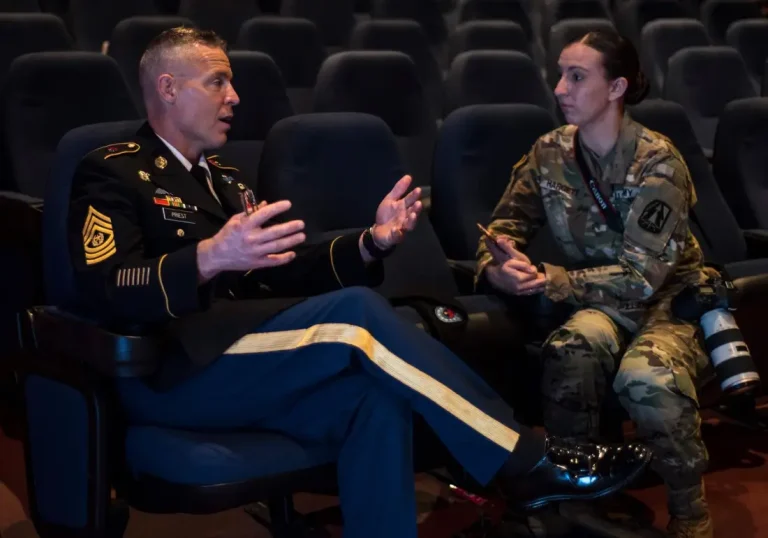The Silence Between Us
Chapter One: The Discovery
The pale light from the bathroom illuminated something I had never noticed before—something that made my breath catch in my throat and my understanding of the past six months shift completely.
There, on the nightstand beside our bed, was a small white pill container. Next to it, a glass of water that hadn’t been there when we’d gone to sleep. And beside that, barely visible in the dim light, was a letter—folded carefully, my name written across it in her elegant handwriting.
My heart hammered against my ribs as the pieces began to fall into place. The way she had sometimes paused mid-sentence during our conversations, searching for words that used to come so easily. The subtle tremor in her hands that she’d explained away as too much coffee. The moments when she would look at me with such intensity, as if she were trying to memorize something precious.
I stood frozen in the doorway, afraid to move forward, afraid to confirm what my mind was already beginning to understand. But I couldn’t ignore the evidence any longer.
With trembling hands, I picked up the pill container. Aricept. The name meant nothing to me, but the description beneath it did: “For the treatment of dementia in patients with Alzheimer’s disease.”
The letter felt impossibly heavy as I unfolded it, my eyes struggling to focus on the words in the dim light.
My dearest David,
If you are reading this, it means the fog has grown too thick for me to pretend any longer. I have been living with early-onset Alzheimer’s disease for the past year, and tonight, on what should be the most beautiful night of our marriage, I find myself afraid that tomorrow I might not remember why I love you so much.
I know what you’re thinking. I know the questions that must be racing through your mind. Why didn’t I tell you? How could I let you marry me knowing what lies ahead? The answers are complicated, and I’m not sure I can explain them in a way that will make sense to anyone but me.
When the doctor first gave me the diagnosis, I felt like my life was over. At 44, I was supposed to have decades ahead of me. Instead, I was facing a future where I would slowly lose everything that made me who I am—my memories, my personality, my ability to recognize the people I love most.
I had resigned myself to facing this alone. And then I met you.
I sank into the chair by the window, the letter shaking in my hands. Through the thin walls of our hotel room, I could hear the distant sound of traffic, the ordinary world continuing while mine crumbled around me.
You looked at me that first night at the gallery opening like I was the most fascinating person in the room. Not because I was beautiful—I’ve never considered myself particularly beautiful—but because you saw something in me that went deeper than appearance. You said I had depth, experience, wisdom. You said I understood life in a way that younger women didn’t.
And for the first time since my diagnosis, I felt like myself again. Not a patient, not a victim, not a tragedy waiting to happen. Just a woman who had captured the attention of an extraordinary young man.
I told myself I would keep it casual. A few dinners, some intelligent conversation, maybe a brief romance that would give me some beautiful memories to hold onto before the darkness came. But you were so earnest, so genuine in your affection. You spoke about depth and maturity as if they were the most attractive qualities a person could possess. You made me feel valued for everything I was rather than pitied for everything I was losing.
When you proposed, I should have said no. I should have told you the truth. But David, I was selfish. I wanted to be loved completely, unconditionally, one more time before my mind began to betray me. I wanted to know what it felt like to be chosen, to be treasured, to be seen as someone’s perfect match rather than someone’s burden.
I convinced myself that love would be enough. That somehow, if you loved me deeply enough, I could fight this disease. That your faith in my wisdom and experience could somehow preserve the parts of myself that matter most.
But tonight, as I watched you getting ready for bed with such tender anticipation, I realized how unfair I’ve been. You married a woman you believed would be your partner for decades to come. You fell in love with my mind, and I’m about to lose it. You spoke of my emotional stability, and I’m about to become a stranger to myself.
I had to stop reading. The words were blurring together, and I couldn’t tell if it was because of the dim light or the tears that had begun to gather in my eyes. I looked back at the bed where she lay sleeping, her breathing soft and even, and felt a crushing weight settle in my chest.
Everything made sense now. The way she had insisted on a quick engagement, claiming that when you know, you know. The subtle changes I had attributed to wedding stress—moments of confusion, the increasing frequency with which she wrote things down, the way she sometimes looked at me as if she were trying to solve a puzzle.
The woman I had fallen in love with—brilliant, articulate, emotionally sophisticated—was disappearing, and she had known it all along.
Chapter Two: The Weight of Deception
I forced myself to continue reading, though every word felt like a small betrayal of the trust I thought we had built together.
The silence you experienced tonight wasn’t rejection, David. It was fear. Fear that if I let myself be completely vulnerable with you, if I allowed you to see me as the wife I want to be, the loss would be even more devastating when it comes.
I froze because I love you too much to pretend everything is normal. I couldn’t kiss you and hold you and make love to you knowing that I might wake up tomorrow and not remember why your touch feels like coming home. I couldn’t give you a wedding night built on a lie, even if the alternative is this terrible honesty.
By the time you read this, you’ll have a choice to make. You can have our marriage annulled. You can walk away from what’s coming and find someone who can give you the future you deserve. Someone whose mind will grow sharper with age rather than dimmer. Someone who will remember your children’s names and your anniversary and the way you like your coffee in the morning.
Or you can stay.
If you stay, you need to understand what you’re signing up for. The woman you married for her experience and wisdom will gradually lose both. I will forget our conversations, our jokes, our private language. I will forget why I love you, and eventually, I will forget who you are entirely. There will come a day when I look at you like a stranger, when the depth you found so attractive will be replaced by confusion and fear.
I know it’s not fair to ask you to choose this. I know I should have given you all the information before you made your vows. But I was weak, and I was selfish, and I wanted to be loved completely at least once before I lost the ability to love in return.
If you decide to stay, I need you to know that I’ve made preparations. I’ve spoken with doctors, arranged for care, set aside money for what’s coming. I won’t ask you to be my caregiver—that’s not the marriage either of us signed up for. But if you’re willing to be my husband for whatever time I have left as myself, I promise to love you with everything I am while I still know who that is.
All my love, Margaret
P.S. – The woman you fell in love with is still here, David. She’s just on borrowed time. If you can find a way to love me through what’s coming, these might be the most precious months of both our lives.
I set the letter down with hands that wouldn’t stop shaking. Through the window, dawn was beginning to creep across the horizon, painting the sky in shades of pink and gold that seemed almost mocking in their beauty. Everything looked the same as it had twelve hours ago, but the world had fundamentally shifted.
Margaret stirred in the bed behind me, and I quickly folded the letter and placed it back on the nightstand. I slipped quietly back into bed, my mind racing with questions I wasn’t ready to ask and answers I wasn’t prepared to hear.
She rolled toward me in her sleep, her arm draping across my chest in a gesture that felt both familiar and foreign. This was my wife—the woman I had chosen to spend my life with, the woman I had been so proud to marry despite what everyone said about our age difference. But she was also a stranger, someone who had hidden the most fundamental truth about her existence.
I lay in the darkness, listening to her breathe, and tried to process the magnitude of what I had learned. The intellectual connection I had treasured, the emotional sophistication that had drawn me to her, the wisdom born of experience—all of it was temporary. More than temporary: it was already slipping away.
And yet, as I lay there in the early morning light, I found myself thinking not about what I was losing, but about what she had already lost. The career she had been forced to abandon. The future she had planned for herself. The independence and confidence that had defined her for four decades.
Margaret had been facing the slow dissolution of her identity, and instead of retreating into solitude or self-pity, she had chosen to love me. She had chosen to let herself be vulnerable, to take the risk of being known and cherished even though she knew that love would come with a expiration date.
The deception hurt—there was no denying that. But as I held her sleeping form and watched the sun rise over our first day as a married couple, I began to understand that her silence hadn’t been about manipulation or selfishness. It had been about hope. Hope that love could transcend the clinical realities of disease. Hope that connection could exist even in the face of inevitable loss. Hope that I might choose her not despite her condition, but because of who she was in spite of it.
Chapter Three: The Confrontation
Margaret woke slowly, the way she always did, her eyes fluttering open as if she were surfacing from deep water. For a moment, her gaze was unfocused, confused, and I felt a chill of recognition. Then she saw me watching her, and her expression cleared.
“Good morning, husband,” she said softly, and I heard the question beneath the greeting. She was wondering if I had found the letter, if I knew her secret, if this would be our last morning together or the first morning of something unimaginably difficult.
“Good morning, wife,” I replied, and watched relief flood her features.
We lay in silence for a few minutes, both of us aware that we were balanced on the edge of a conversation that would define the rest of our relationship. I studied her face in the morning light—the laugh lines around her eyes, the silver threads in her dark hair, the intelligence that still shone clearly despite everything I now knew.
“Margaret,” I said finally, “we need to talk.”
She closed her eyes briefly, as if gathering strength. “You found the letter.”
“I found the letter. And the pills.”
She sat up slowly, pulling the hotel robe around herself like armor. “How much do you hate me right now?”
The question caught me off guard. “I don’t hate you.”
“You should,” she said quietly. “I lied to you. I let you marry me under false pretenses. I made you promise to love me in sickness and in health without telling you exactly what kind of sickness we were talking about.”
I sat up as well, turning to face her fully. “Why didn’t you tell me?”
Margaret was quiet for a long moment, her hands folded in her lap. When she spoke, her voice was barely above a whisper.
“Because I was afraid you would love me differently,” she said. “I was afraid you would look at me and see a patient instead of a woman. I was afraid you would stay out of pity instead of desire, or leave out of fear instead of choice.”
“So you chose for me.”
“Yes,” she admitted. “I chose for you. And I was wrong to do that.”
The honesty of her admission defused some of my anger, but not all of it. “Margaret, do you understand what you’ve done? I fell in love with your mind. Your intelligence, your insight, your ability to see through complicated situations and find clarity. And you’re telling me that the very thing I love most about you is going to disappear.”
Tears began to slide down her cheeks. “I know. And I know how cruel that must seem. But David, my mind is still here right now. The woman you fell in love with is still here. Yes, she’s going to change, and yes, that change is going to be devastating. But she exists today, in this moment, and she loves you more than she has ever loved anything in her life.”
I stood up and walked to the window, needing space to think. The parking lot below was beginning to fill with cars as the world went about its ordinary business. Somewhere out there, couples were waking up to normal first days of marriage, filled with nothing more complicated than the usual adjustments and negotiations that come with combining two lives.
“How long do we have?” I asked without turning around.
“I don’t know,” Margaret said honestly. “The doctors say it varies. Some people decline rapidly, others hold on to themselves for years. The medication I’m taking might slow the progression, but it won’t stop it.”
“And you’re only 44.”
“Early-onset Alzheimer’s is rare, but it happens. Usually, it’s genetic. My mother died when I was fifteen—I always thought it was a stroke, but I had my doctor run some tests after my diagnosis. Looking back at her medical records, the signs were there.”
I turned back to face her. “What are the early signs? What should I be watching for?”
The question seemed to surprise her. “You’re not leaving?”
“I’m trying to understand what I’m choosing,” I said carefully. “You’ve given me half the information I need to make this decision. Now I need the rest.”
Margaret’s relief was palpable, but she tried to hide it. “Memory problems, obviously. Not just forgetting where I put my keys, but forgetting conversations we’ve had, people I’ve met recently. Confusion about time and place. Difficulty with familiar tasks. Changes in personality or behavior.”
“Have you noticed any of these things already?”
She nodded reluctantly. “Small things. I forgot our dinner reservation last week and made another one for the same night. I got lost driving to the grocery store I’ve been shopping at for three years. Sometimes I reach for words that used to come easily, and they’re just… gone.”
I felt a stab of recognition. There had been small moments over the past few months that I had attributed to stress or distraction, but now they took on a different significance.
“Why me?” I asked. “Why did you let yourself fall in love with someone so much younger?”
Margaret smiled sadly. “Because you were the first person in months who looked at me like I was still myself. Because you valued my experience and my perspective rather than being intimidated by them. Because you made me feel like I had something to offer instead of something to hide.”
She paused, choosing her words carefully. “And because I thought… I hoped… that someone younger might be more willing to take risks. That you might be less afraid of an uncertain future because you haven’t lived long enough to become attached to certainty.”
Chapter Four: The Choice
We spent the rest of that morning talking. Margaret told me about her diagnosis, about the months of testing and second opinions, about the way her world had narrowed from professional success and social connections to doctor’s appointments and research into care facilities. She told me about the loneliness of facing such a diagnosis alone, about the way even close friends had begun to treat her differently once they knew.
I told her about my anger, my sense of betrayal, but also about my growing understanding of why she had made the choices she had. I told her about the love I felt for her—not the idealized version I had married, but the real woman sitting across from me, flawed and frightened and heartbreakingly honest now that the pretense was over.
“I need time,” I said finally. “I need to process this, to understand what it would mean to stay, what it would mean to leave. This isn’t a decision I can make in a few hours.”
Margaret nodded. “I understand. And David… whatever you decide, I want you to know that these past six months have been the happiest of my life. You gave me the gift of feeling chosen, feeling valuable, feeling like myself one last time. That’s worth everything to me, regardless of what happens next.”
We checked out of the hotel in silence and drove home to the apartment we had planned to share as newlyweds. The space felt different now, charged with possibility and dread in equal measure. Margaret moved through the rooms carefully, as if she were trying to memorize their layout, while I found myself looking at everything through the lens of impermanence.
Over the next few days, I threw myself into research. I read everything I could find about early-onset Alzheimer’s disease, about the progression of symptoms, about what caregiving would entail. I called support groups and spoke with social workers. I talked to friends and family, though I kept Margaret’s specific diagnosis private.
Most people assumed I was having second thoughts about the age difference, and their advice was predictably divided. Some urged me to get out while I still could, to find someone my own age who could give me the future I deserved. Others reminded me that marriage vows were meant to be tested, that this was exactly the kind of challenge that true love was supposed to overcome.
But none of them understood the unique cruelty of loving someone whose mind was disappearing. They couldn’t comprehend what it meant to build a life with someone whose fundamental self was temporary.
Margaret gave me space during those days, but I was aware of her watching me, trying to read my expressions, looking for clues about what I was thinking. She continued taking her medication, continued going through the motions of normal life, but there was a fragility to her that hadn’t been there before. The secret was out, and she seemed smaller somehow, more vulnerable.
A week after our wedding night, I made my decision.
Chapter Five: The Commitment
I found Margaret in the kitchen on a Thursday evening, preparing dinner with the same careful attention to detail that had first attracted me to her. She looked up when I entered, and I saw both hope and resignation in her eyes.
“I want to stay,” I said without preamble. “I want to try.”
The relief that washed over her face was immediately followed by concern. “Are you sure? Do you understand what you’re signing up for?”
“No,” I said honestly. “I don’t think anyone can really understand what this is going to be like until they live it. But I know that I love you. Not the perfect version of you that I thought I was marrying, but the real you. The woman who was brave enough to love me even though she knew it was going to hurt. The woman who fought for happiness in the face of an impossible diagnosis.”
I took her hands in mine. “I can’t promise I’ll be perfect at this. I can’t promise I won’t sometimes resent what this disease does to us. But I can promise that I’ll try to love you through it. I can promise that I’ll fight to see the person you are, even when that person becomes harder to find.”
Margaret began to cry, but these were different tears than the ones she had shed earlier. These were tears of gratitude and relief and something that looked like peace.
“There are conditions,” I continued. “I want complete honesty from now on. I want to be involved in all your medical decisions. I want to meet with your doctors, understand your treatment options, plan for what’s coming. If we’re going to do this, we’re going to do it together.”
“Of course,” she whispered. “Anything.”
“And I want us to live,” I said firmly. “I don’t want us to spend whatever time we have waiting for you to get worse. I want us to travel, to make memories, to experience everything we can while you’re still yourself. I want us to have a real marriage, not a long goodbye.”
Margaret smiled through her tears. “I want that too.”
That night, we made love for the first time as husband and wife. It was gentle and desperate and shot through with the knowledge that our time was limited, which somehow made every touch more precious. Afterward, as we lay entwined in the darkness, Margaret spoke softly about her fears and her hopes, and I told her about mine.
“I’m scared I’ll forget how much I love you,” she whispered.
“Then I’ll remind you,” I replied. “Every day, as many times as it takes.”
“I’m scared you’ll forget why you loved me.”
“Then you’ll remind me,” I said. “By being yourself for as long as you can.”
Chapter Six: The New Normal
The months that followed were unlike anything I had imagined marriage would be. We lived with an intensity born of scarcity, cramming years of experiences into whatever time we had. We traveled to places Margaret had always wanted to see. We spent long evenings talking about everything—her childhood, my dreams, our fears, our hopes. We created traditions and inside jokes and a private language that belonged only to us.
The progression of her disease was gradual at first. Small lapses in memory, moments of confusion that came and went like clouds across the sun. Margaret began keeping detailed journals, recording our conversations and experiences so she could reread them when her memory failed. She recorded videos of herself talking about our relationship, about who I was to her, about what our life together meant.
I learned to live in the present in a way I never had before. Every conversation became precious because it might be the last time she would remember having it. Every moment of clarity was a gift to be treasured rather than taken for granted.
There were difficult days, times when the disease robbed us of the woman I had married and left someone confused and frightened in her place. But there were also beautiful days, moments of connection that felt deeper and more authentic than anything I had experienced in my previous relationships.
Margaret taught me about courage during those months. Not the courage of facing danger, but the courage of facing loss while still choosing to love. She showed me what it meant to live fully in the face of inevitable diminishment, to find joy and meaning even when the future held only uncertainty.
Our friends and family gradually learned about her condition, and their reactions varied wildly. Some pulled away, unable to cope with the reality of what was happening. Others rallied around us, offering support and understanding. The people who stayed taught me about the true meaning of community—not just the celebration of good times, but the willingness to stand witness to suffering and loss.
As I write this, it has been two years since our wedding night, eighteen months since Margaret’s diagnosis became our shared reality. She still knows who I am, still remembers our love story, still fights every day to remain herself. The medications have slowed the progression somewhat, giving us more time than we initially hoped for.
But I can see the changes. The increasing frequency of her confused moments, the way she sometimes struggles to find words that used to come easily, the fear in her eyes when she realizes she has forgotten something important. We are living on borrowed time, and we both know it.
People often ask me if I regret my choice, if I wish I had walked away when I had the chance. The answer is complicated. Yes, I regret the deception, the months of planning a future based on incomplete information. Yes, I sometimes grieve for the marriage I thought I was going to have, the decades of partnership and growth that won’t be possible now.
But I don’t regret choosing love over fear. I don’t regret deciding that a shortened life lived fully is better than a long life lived cautiously. I don’t regret learning what it means to love someone not for what they can give you, but for who they are in their essence.
Margaret was right about one thing: the woman I fell in love with is still here. She’s different now, more fragile, more dependent, but she’s still the same person who challenged my assumptions about age and compatibility. She’s still the woman who chose to love me despite knowing that love would come with a price.
And if that’s not wisdom, if that’s not depth, if that’s not the kind of experience that makes a person truly mature, then I don’t know what is.
Our wedding night didn’t end the way either of us expected it to. But then again, neither did our marriage. What we have is imperfect, temporary, and heartbreaking. It’s also honest, profound, and more real than anything I thought possible.
I chose to marry a woman nineteen years older because I thought she had something to teach me about life. I was right, just not in the way I expected. She taught me that love is not about finding someone perfect, but about choosing someone completely—flaws, fears, limitations, and all.
She taught me that the most profound connections come not from shared strengths, but from shared vulnerabilities. And she taught me that sometimes the most courageous thing you can do is not to protect yourself from loss, but to open yourself fully to it, knowing that the love you gain is worth the pain you’ll eventually endure.
These are lessons I could never have learned from someone my own age, someone who still believed in the luxury of unlimited time. These are lessons that only someone facing the end could teach, lessons that only someone willing to love in the face of certain loss could understand.
So yes, I married a woman nineteen years older because I thought she was experienced and deep. I stayed with her because I learned that experience and depth are not about the accumulation of years, but about the willingness to remain vulnerable, to keep loving, even when love becomes the most dangerous thing you can do.
Our story won’t have the ending either of us hoped for. But it will have been real, and honest, and beautiful in its imperfection. And sometimes, that’s enough.

Emily Johnson is a critically acclaimed essayist and novelist known for her thought-provoking works centered on feminism, women’s rights, and modern relationships. Born and raised in Portland, Oregon, Emily grew up with a deep love of books, often spending her afternoons at her local library. She went on to study literature and gender studies at UCLA, where she became deeply involved in activism and began publishing essays in campus journals. Her debut essay collection, Voices Unbound, struck a chord with readers nationwide for its fearless exploration of gender dynamics, identity, and the challenges faced by women in contemporary society. Emily later transitioned into fiction, writing novels that balance compelling storytelling with social commentary. Her protagonists are often strong, multidimensional women navigating love, ambition, and the struggles of everyday life, making her a favorite among readers who crave authentic, relatable narratives. Critics praise her ability to merge personal intimacy with universal themes. Off the page, Emily is an advocate for women in publishing, leading workshops that encourage young female writers to embrace their voices. She lives in Seattle with her partner and two rescue cats, where she continues to write, teach, and inspire a new generation of storytellers.









